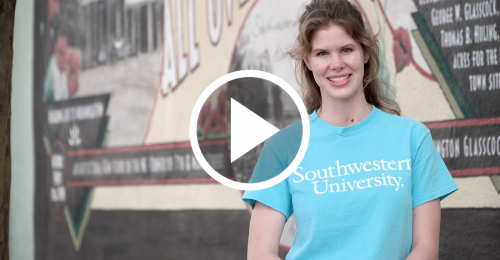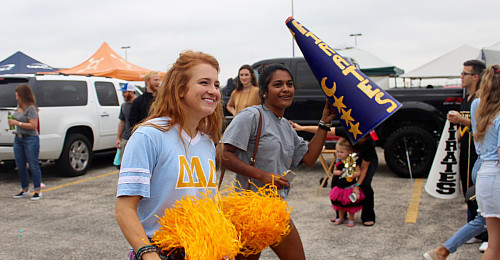News
How to Take Care of Your Deep Health in College
March 24, 2021
March 24, 2021
Open gallery

At first glance, the words deep health can certainly sound a bit … intense. I came across this phrase while studying for Precision Nutrition’s PN L-1 nutrition coaching certification, and I was certainly a bit intimidated at first. When did health become “deep”? Are other types of health somehow shallow and incomplete? How does maintaining deep health fit into the busy schedule of a college student?
These are all valid questions, especially in today’s landscape: thanks to social media, Google, and scientific journals, books, and magazines, information related to health, nutrition, and fitness is abundantly available and constantly changing. Navigating the informational seas is no easy feat, as it’s become increasingly difficult to separate health from hype. A Google search for “paleo vs. keto diet” yields roughly 30.3 million results, “mindfulness” returns 209 million, and “deep health” provides 2.6 billion. Health in the 21st century truly seems like a complex, even contentious topic.
So how can you keep things simple, especially in college? Finding what deep health looks like for you is a good place to start. At its core, deep health focuses on a person as a whole and throughout their lifespan. We change over time, which is why deep health exists along a continuum. There are six key elements to keep in mind, but they’re all deeply (pun intended) interconnected: physical, mental, emotional, existential, relational–social, and environmental. Taking care of any one of these aspects more often than not means you’re already making strides toward taking care of the others. So don’t worry too much about tackling every piece of the puzzle at once, and know that the transition to the hustle and bustle of college life is a great opportunity to learn about and even improve your own health.
“The transition to the hustle and bustle of college life is a great opportunity to learn about and even improve your own health.”
Getting physical
This area of deep health concerns your age, gender, biology, genetics, physical activity, and any health conditions you might have. Of course, not all aspects of our physical selves are under our control, as the wonderful Punnett square (those fun little 4x4 boxes used to predict genetic traits) deftly demonstrates. However, there’s a lot you can do to influence your energy levels and how your body feels on a daily basis. Walking a quarter mile across campus to get to class? That counts as exercise. Sleeping, staying hydrated, and fitting some movement into your day may sound basic, and they are. However, these little habits pack a punch without requiring much effort. Being just a little dehydrated could mean getting an A– instead of an A because you were unable to focus as well as you ordinarily would.
It’s (not) all in your head
Mental health certainly includes issues like anxiety and depression, but it also concerns how you think, learn, and remember things on a daily basis. Successfully navigating organic chemistry or finance takes some serious mental effort (if these topics are easy for you, feel free to share some tips and tricks), and being able to think critically about complex problems, stay organized, and learn new skills is key to success during your college years and whatever comes next. Take some time to find what kinds of studying work best for you: solo or in a group, morning or evening, in your dorm room or in the library, etc. The Pomodoro Technique (using timed work and rest intervals to enhance focus and memory), listening to Taylor Swift’s newest album on repeat, simultaneously highlighting and underlining … if it helps, it’s worth a shot. If things still aren’t clicking while you’re in class or preparing for an exam, your university’s Center for Academic Success can connect you with a peer academic mentor and other resources.
It’s OK to be in your feelings
Emotional health is about breadth and depth (surely you’ve seen that phrase on college applications or while putting together a résumé). Your emotional range and how you process those feelings is unique to you and has a significant influence on your day-to-day life. College can definitely be an emotionally turbulent experience, which isn’t necessarily a bad thing, but it’s important to face these emotions as they come. University counseling services are a fantastic resource, and even just journaling or having an open conversation with a friend can do wonders.
Existential crisis averted
Having a sense of who you are, what you’re passionate about, and where you fit in the world are all a part of your existential health. Once you’ve managed to answer “where are you going to college?” for the hundredth time, the next question likely to arise is probably something along the lines of “what are your plans after graduation?” There’s no need to have an answer to this question right now, but seizing the opportunity to explore options is key. Joining a student organization, auditing a class just for fun, or talking with your advisor about short- and long-term goals are great places to start.
No (hu)man is an island
Perhaps you had to read that poem in high school. If not, it’s worth a read (don’t worry: it’s pretty short) because John Donne makes a very valid point: humans are inextricably connected to each other. Relational–social health looks at our bonds with friends, parents, professors, roommates, and friends. Building and having a support system around you are invaluable, so it’s important to maintain the relationships you already have and to be open to new ones. University-sponsored opportunities to meet new people like community service projects, plays, and sports events are an easy first step.
Going green
Environmental health does indeed include your day-to-day interactions with the great outdoors, but it also concerns things like access to food and having a place to sleep, exercise, and study. Navigating from place to place on campus may take a little time before it’s second nature, so feel free to reach out to faculty, staff, or other students should you find yourself lost with only five minutes until your next class. Exploring off-campus options for food, fitness, and fun is a great thing to do with friends, and it’s really helpful to already know where your nearest H-E-B is when you’re making a grocery run at 10:00 p.m. Farmers’ markets get you access to food and the outdoors; check out Texas Farmers Markets, Certified Farmers Markets, and SFC Farmers’ Market for more information about those in Austin and other parts of Texas.
Taking the time to assess your “normal” in each aspect of deep health can help give you an early warning if things are starting to get a little out of hand or a sign that you’ve made progress, intentional or unexpected. Keeping track of six different aspects of health may seem daunting at first, but it’s deceptively simple. Each category inevitably affects the others: meeting up with a few friends to go for a run or a hike addresses the physical, relational–social, and environmental components of you (at the very least). On the flip side, the stress and sleep deprivation that can accompany finals week can take a toll on your mental, emotional, and physical health.
So it’s important to keep the big picture in mind: being healthy is never all or nothing, and sometimes it means doing a little more, like making sure you get to bed at a reasonable hour, and sometimes it means doing a little less, like taking a break from studying if the formula for a derivative just won’t stick. If you’re interested in learning more about deep health and related topics but don’t have the time to read a 30-page paper about a double-blind placebo-controlled study examining the effects of MCT oil on cognitive function, podcasts and social media can help, and the critical-thinking skills you’ve been honing for years will help you steer clear of false news. Here are some podcasts I’ve found pretty helpful: The Dr. John Berardi Show, The Doctor’s Farmacy, and The Genius Life. You’ve got this!






























